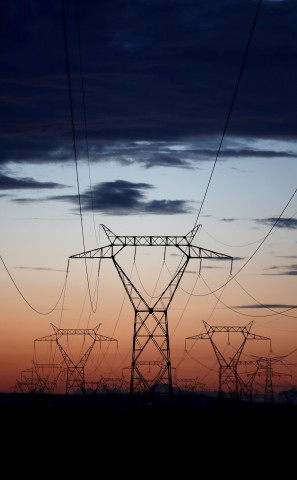PTI govt aims to settle power capacity payment row
Power Division will discuss eight-point plan with IPPs in meeting on Thursday

PHOTO: REUTERS
The eight-point plan comprises, besides resolution of the capacity payment row, interest rate reduction, compound interest, heat rate test, currency indexation for local investors, extending debt term, operation and maintenance costs and return on equity.
The Power Division has already sent a summary to the Economic Coordination Committee (ECC) for taking views and comments of relevant stakeholders.
Capacity payment has come in for a lot of criticism of late. Power consumers have been paying capacity charges to those power plants which have remained idle for most of the time.
An inquiry committee, headed by former Securities and Exchange Commission of Pakistan (SECP) chairman, had pointed out that owners of IPPs had earned 50-70% profit annually due to the alleged favour given in the Power Policy of 2002.
The committee also found that current capacity payments stood at Rs900 billion, which would rise to Rs1,500 billion by 2025 with the commissioning of new power plants. The committee recommended abolition of the clause of capacity payment.
Officials say power plants set up under the Power Policy of 2002 had recovered their investment and even made hefty profits. They had also repaid bank loans.
Officials said if the government wanted to scrap capacity payment, then it would have to end the monopoly of power distribution companies and power producers would have to allow find out their clients.
The government also wants the IPPs to lower interest rate by spreading the tenure of loans. It would help the government to cut power tariff. Past governments had insisted that the power producers conduct the heat rate test. This would help revise power tariff downwards in line with the efficiency of power plants.
State-run power generation companies have conducted heat rate tests. But the IPPs have refused to undertake the test, saying it was not part of the agreement.
Another issue is that local investors in the power sector were offered currency indexation in dollar terms. The fluctuation in exchange rate resulted in an increase in power tariff that helped power producers to make money.
The government now wants to introduce currency indexation in rupee terms instead of dollar. The government has already decided to cut the rate of return for state-run power plants.
According to a notice, the government is making efforts to facilitate and enable the common man to make both ends meet, including the provision of basic utilities such as electricity at affordable rates.
The Covid-19 pandemic has worsened the situation and has adversely impacted the overall economy.
CCOE meeting
Meanwhile, the Cabinet Committee on Energy (CCOE) will meet on Friday to consider negotiations relating to power purchase agreements.
Federal Minister for Planning, Development and Special Initiatives Asad Umar chaired a meeting of the CCOE on Wednesday.
The Power Division secretary briefed the committee about the implementation of decisions taken in the last CCOE meeting. The committee directed that the measures approved by it may be implemented as per given timelines.
The Power Division also briefed the meeting on various actions taken to improve governance in the power sector. The CCOE directed the Power Division to submit a formal summary containing proposals for further reforms in the sector’s governance structure.
The committee would reconvene on Friday to take up remaining agenda items pertaining to establishing competitive markets for electricity and the impact of Covid-19 on the energy sector.
Published in The Express Tribune, April 16th, 2020.
Like Business on Facebook, follow @TribuneBiz on Twitter to stay informed and join in the conversation.


















COMMENTS
Comments are moderated and generally will be posted if they are on-topic and not abusive.
For more information, please see our Comments FAQ